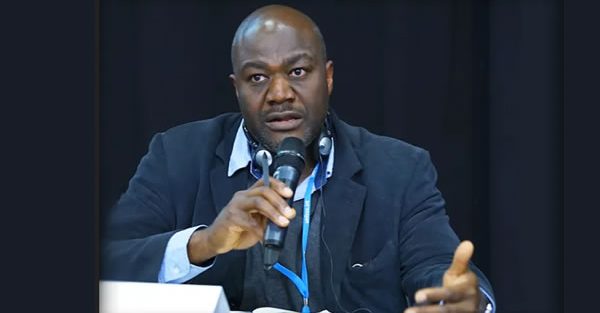The ongoing effort to stem the negative impact of climate change presents Nigeria with unique opportunities to boost its economy and improve electricity supply through renewable sources, expert on climate change issues, Professor Chukwumerije Okereke has said.
Okereke who is the Director, Centre for Climate Change and Development, CCCD, Alex Ekwueme Federal University, Ndufu-Alike, stated this in Abuja at the award ceremony for the winners of the second National Essay Competition titled ‘Climate Change and Nigeria’s Economic Development: A letter to Mr. Incoming President’.
Prof. Okereke said the essays written by the three finalists would be sent to whoever emerges Nigeria’s President in the general elections.
He noted that climate change was not just an environmental issue but a national emergency that should be paid serious attention to by all Nigerians.
According to him, “Many people misunderstand climate change as a small environmental problem somewhere. We are saying that climate change is a national economic development issue. It has to do with agriculture. It has to do with migration. It has to do with security. It has to do with water resources. It has to do with energy. It has to do with urban planning. It has to do with transportation.
“Nigeria is losing according to the statistics and research done by the UK Government up to $100 billion a year to climate change as at 2020. And that number may go up to $250 billion per year by 2050 if Nigeria fails to take drastic action to tackle the problem. And the youth is the future.
“They’re our leaders. You can see how massive their engagement in the current election campaign is. So we thought that it’s important to bring the youth together, to animate them, to equip them to empower them, to sensitise them so that they can champion the cause of climate change and the action to solve the problem in Nigeria.
“As to whether the right is going to get to the President, absolutely. We will make sure that we email these three winning essays to whoever becomes the next president”.
Prof. Okereke explained that the government needs to create more awareness among Nigerians on the impact of climate change and also set out a national plan to tackle the issues.
He said that the national plan has to be implemented to the letter and also ensure that institutions charged with implementing the policies are staffed with competent people to drive the process.
“The good news is that if we can act on climate change in a sensible and wise and intelligent manner, we can actually turn it from being a threat to being an opportunity. For example, in the area of renewable energy, we have just about 4,000 megawatts of energy that we are generating for a country of about 200 million people. South Africa generates about 40 gigawatts. And yet, Nigeria is a land of sun, we can harvest all the energy we need to meet our power and electricity from the sun.
“Second, we can begin to utilise what we call green agriculture to be able to deal with the issue of desertification, desert encroachment, the degradation of the Lake Chad lecture and begin to create opportunity for women and men to go into green agriculture, which will build resilience to climate change and also lead to a lot of job opportunities.
“We should stop the flaring of our gas in the Niger Delta, because its contribution is about 55 million metric tonnes of CO2 per annum to Nigeria. And yet if we harness those gases we can use it to power modular cooking and energy in the rural areas of the country”, he added.
Earlier, the Director General, National Council on Climate Change, Dr. Salisu Dahiru warned that the impact of climate change would affect all Nigerians regardless of position or status in life.
Represented by the Director, Energy, Transportation and Infrastructure, Dr. Michael Ivenso, he urged Nigerian youths, especially young women to take greater interest in matters of climate change for the good of the country.






